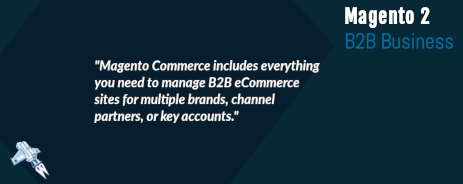
Magento 2 REST APIs: What They Are and Why They Matter
No online store exists in a vacuum. To provide the best experience — for customers, but also for your staff and partners — an e-commerce platform must share data with lots of other software systems. For example:
- Your online store needs up-to-date inventory details. It can only get those from an inventory system or enterprise resource planning (ERP) solution.
- Maybe you use custom cloud applications to add unique features to your online storefront. All of those apps need to communicate with the e-commerce platform, too.
- Customer relationship management (CRM) tools, accounting software, supply chain management systems: They all hold data that can make your e-commerce operation more successful (and vice versa).
In all these instances, data has to flow freely between your apps to achieve the benefits.
As the leading open-source e-commerce platform, Magento 2 gives developers a powerful tool to build these software integrations: the REST API. Here’s what that means, and how a Magento 2 REST API can help you run your business more efficiently.
The REST API in Magento 2
An application programming interface (API) is a tool that allows applications to share data or functionality. If you’ve embedded a YouTube video on your website, for example, you’ve used a YouTube API.
Every API is essentially a list of rules that both applications have to follow. The API tells software how to ask for a data resource, how to authenticate each other, and so on.
Learn more: What’s an API to Magento, and How Can It Help Me?
Developers write API rules using standard communication protocols. One of these technologies is called Simple Object Access Protocol, or SOAP. In the previous version of Magento, most APIs were built with SOAP, which relies on XML code and has relatively heavy requirements for server resources and bandwidth.
Magento 2 still supports SOAP. But it also uses a communications architecture called Representational State Transfer, or REST. A REST API operates over HTTP protocols, very much like the public internet, in which clients request resources from servers. This design makes REST APIs more efficient and lightweight than their SOAP counterparts.
With Magento 2’s API tools, REST APIs are also generally quicker to create and more flexible in deployment than previous options. They’re ideal for mobile applications, custom integrations, and low-bandwidth ecosystems. Ultimately, REST APIs allow developers to integrate your Magento 2 platform with just about any other software you use. That’s a bigger deal than you might think.
5 Functional Benefits of Magento 2 REST APIs
Let’s get out of the technical weeds and talk about what APIs can do for your business. In the hands of an experienced Magento developer, a custom REST API can:
- Automate workflows that rely on multiple software systems.
- Draw on custom apps to create unique e-store features.
- Simplify supply chain management, order fulfillment, inventory tracking, and more.
- Reduce or eliminate manual data entry.
- Create custom dashboards to guide data-driven decisions.
E-commerce operators choose Magento for its flexibility. Magento 2’s REST APIs make even more customization available; if you can dream up a custom app, these APIs can probably integrate it into your IT ecosystem.
That may sound complicated, but REST architecture makes it simpler than ever. You just need to partner with the proven Magento experts at Blue Stingray. With an e-commerce team led by an Adobe Certified Expert Magento Commerce Developer, Blue Stingray is the ideal partner for any Magento project — including custom API integrations.
Find out more about Blue Stingray’s e-commerce services, or sign up for a demo, on our Magento page.



